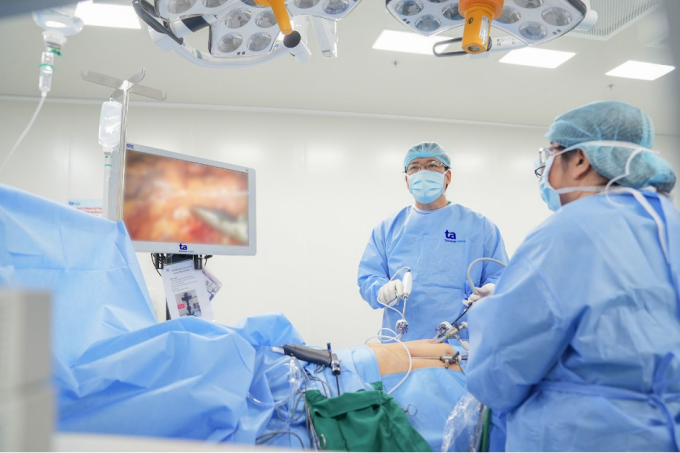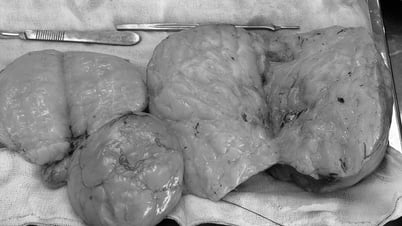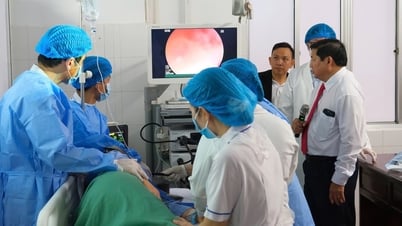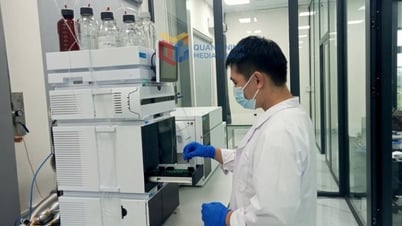Ho Chi Minh City Anh Thang, 29 years old, had a cough and prolonged fever. The doctor discovered he had pylori spasm and esophageal dilation, causing food stagnation leading to pneumonia.
CT scan results at Tam Anh General Hospital in Ho Chi Minh City showed that the patient's chest was dilated, food was stuck in the entire esophagus, compressing the bronchi.
On December 1, Dr. Do Minh Hung, Director of the Center for Endoscopy and Endoscopic Surgery of the Digestive System, said that the patient had esophageal dilatation causing food stagnation and moderation and congestion of the entire gastric mucosa. The patient inhaled stagnant fluid in the esophagus, leading to aspiration pneumonia.
Achalasia is a functional disorder that causes food to not reach the stomach, the esophageal sphincter cannot open completely, so it stagnates. Depending on the severity of the disease, the doctor will prescribe different treatment methods.
WithMr. Thang, the surgeon used the Heller method to cut open the cardiac-esophageal muscle layer, leaving only the mucosal and submucosal layers of the cardiac-esophageal muscle, combined with creating an anti-reflux valve through abdominal endoscopy, because most patients after laparoscopic surgery to cut the lower sphincter often have reflux symptoms.
After surgery, the patient's esophageal obstruction was relieved, symptoms of achalasia were reduced, fever and cough were gone. The patient was discharged two days after surgery and had a follow-up visit as scheduled.

Doctor Minh Hung (left) and his team performed the endoscopic surgery. Photo: Provided by the hospital
Dr. Hung said that patients with achalasia can be treated with balloon dilation, endoscopic surgery or oral endoscopy - cutting the lower esophageal sphincter. Depending on the type, the doctor will choose the appropriate method. In cases where intervention is not possible due to health reasons, temporary medical treatment can be given or botulinum toxin injections into the lower esophageal sphincter are prescribed, the effect is temporary, lasting about 6 months.
According to Dr. Hung, achalasia is rare, and if not detected and treated promptly, it will greatly affect the patient's health and quality of life. Symptoms of the disease include difficulty swallowing, vomiting, chest pain, heartburn, and weight loss.
Currently, the specific cause of the disease is unknown, and the risk factors for prevention are unclear. People with these symptoms should see a doctor for examination and treatment. Patients who are not treated promptly are at risk of complications such as esophageal ulcers due to long-term food retention, aspiration pneumonia due to vomiting, difficulty eating and drinking leading to malnutrition, and chronic inflammation can progress to cancer.
Thao Nhi
* Patient name has been changed
| Readers ask questions about digestive diseases here for doctors to answer |
Source link









































































































Comment (0)